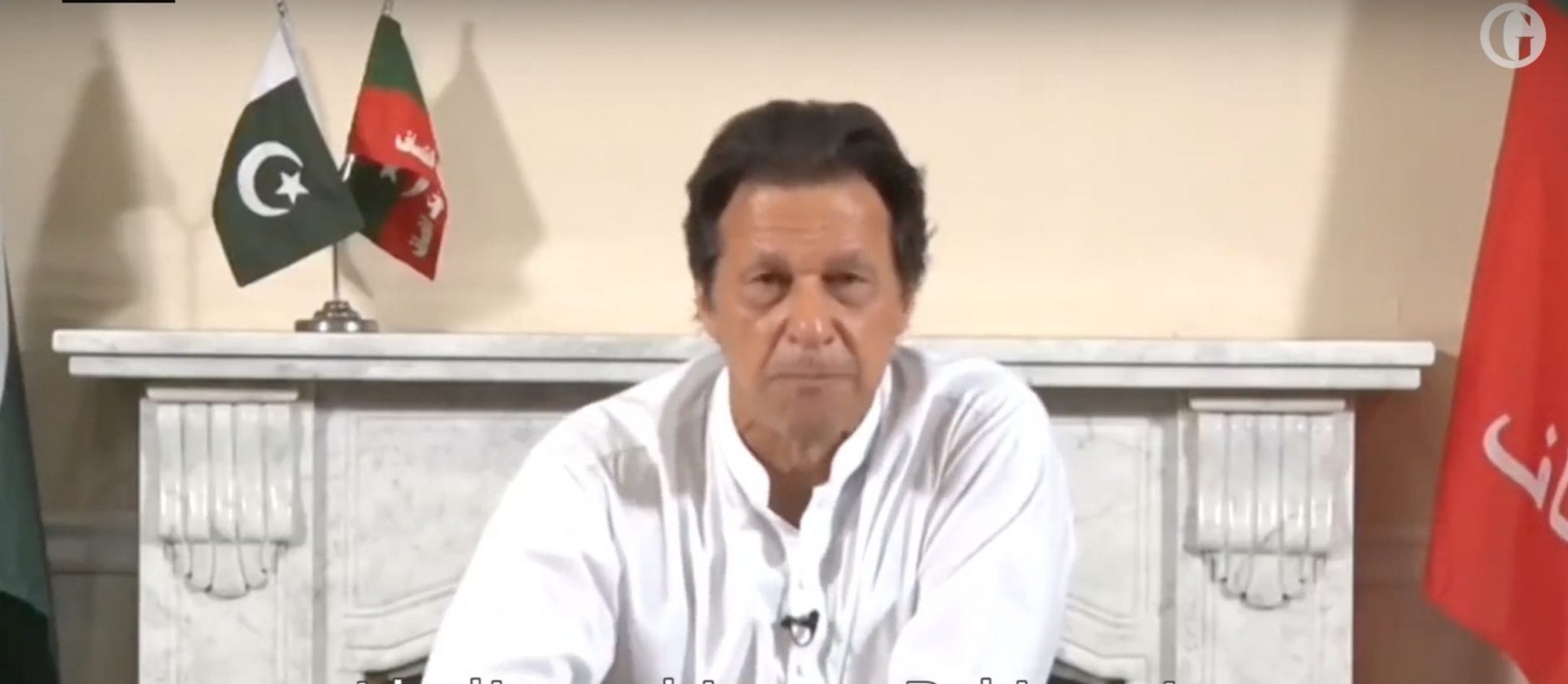Pakistan, where the army has ruled about half the time since independence from Britain in 1947, will continue with its third civilian government during the past ten years. In its general election of last week, the country has just given the mandate to the Pakistan Tehreek-e-Insaf party (“Pakistan Movement for Justice”) led by the celebrity cricketer and philanthropist, Imran Khan. Mr. Khan, who holds a PPE degree from Oxford University, will need to form a coalition government — amidst protests from the opposition, denied by Mr. Khan, that the Pakistan Army assisted in his win.
Marginalized from politics during recent years, Mr. Khan ran an anti-elitist, populist campaign based on a message of hope for the disenfranchised and for the country’s youthful population — and on a U.S. and NATO exit from Afghanistan. His performance against the entrenched Pakistan Muslim League-N and Pakistan Peoples Party is nothing short of stunning.
Following India’s Narendra Modi, Britain’s Theresa May, U.S. President Donald Trump, and France’s Emmanuel Macron, Mr. Khan is another to lead a major country as a breaker of icons.
Although Pakistan has recently recorded a very respectable 5.8% GDP growth rate, Mr. Khan has nonetheless inherited a challenge that could be characterized as a turnaround. Most observers think Pakistan will need to cut a deal with the IMF this year to address its external debt, which is equivalent to nearly 30% of GDP, as recently reported by the Wall Street Journal citing the Pakistan Bureau of Statistics. Other strategic challenges include for example, fostering a meritocracy in a country based on extreme privilege; enhancing the status of Parliament, the Supreme Court, and the judiciary more broadly to emphasize civilian control; increasing the tax base in a country where an estimated 1% of adults pay income tax (as reported by Reuters in April); cooling tensions with neighboring India, which like Pakistan, has an outsized defense budget; and negotiating a deal with the Afghan Taliban and an end to the U.S. and NATO presence in Afghanistan.
Mr. Khan is expected to become prime minister with much enthusiasm and spirited goodwill for him. Nonetheless, he has the unenviable challenge of keeping the support of the Pakistan Army. Besides being the sixth largest army in the world, the Pakistan military is also the country’s leading business enterprise, with investment holdings in many sectors of the economy. Like the well-known saying about Prussia, most countries have an army, yet in Pakistan it is the reverse.
For years there has been a tenuous relationship between national security and democracy in Pakistan, with interventions by the Pakistan Army from time to time. Careers in the Pakistan Army have been based on vilification of India, and to a lesser extent counterinsurgency against jihadist militants. While the Pakistan Army has remained in the barracks in recent times, it casts a large shadow over civilian leadership. Too much joyful populism will not sit well with the Pakistan Army, which will not insert rose blossoms into assault rifles and mingle with jubilant people on the street.
Mr. Khan will need to deal with massive cynicism about authority in general, as well as a culture of creative avoidance of regulations. While he will espouse human rights and opportunity for those without access to the mainstream economy, he will also have to address Pashtun nationalism, a powerful force of a major ethnic group on both sides of the porous border of so-called AfPak. Further, he will need to contend with separatist forces in Balochistan, one of the country’s provinces.
Although it sounds peppy on the hustings to demand a U.S. and NATO withdrawal from Afghanistan, an unintended consequence could be to embolden the encroaching and revitalized Afghan Taliban, which is heavily Pashtun in composition. And for decades, the Pakistan Army and ISI, the intelligence service, have maintained strong ties with jihadist networks, “feeding the crocodile” — perhaps to postpone being eaten, as in the analogy of Winston Churchill.
Mr. Khan’s win is a victory for the people of Pakistan over the forces of elitist privilege and foreign influence. However, Pakistan’s new leader will likely see the need for compromise with the very forces that he has railed against.
Frank Schell is a business strategy consultant and former senior vice president of the First National Bank of Chicago. He is a Lecturer at the Harris School of Public Policy, University of Chicago and a contributor of opinion pieces to various journals.
























